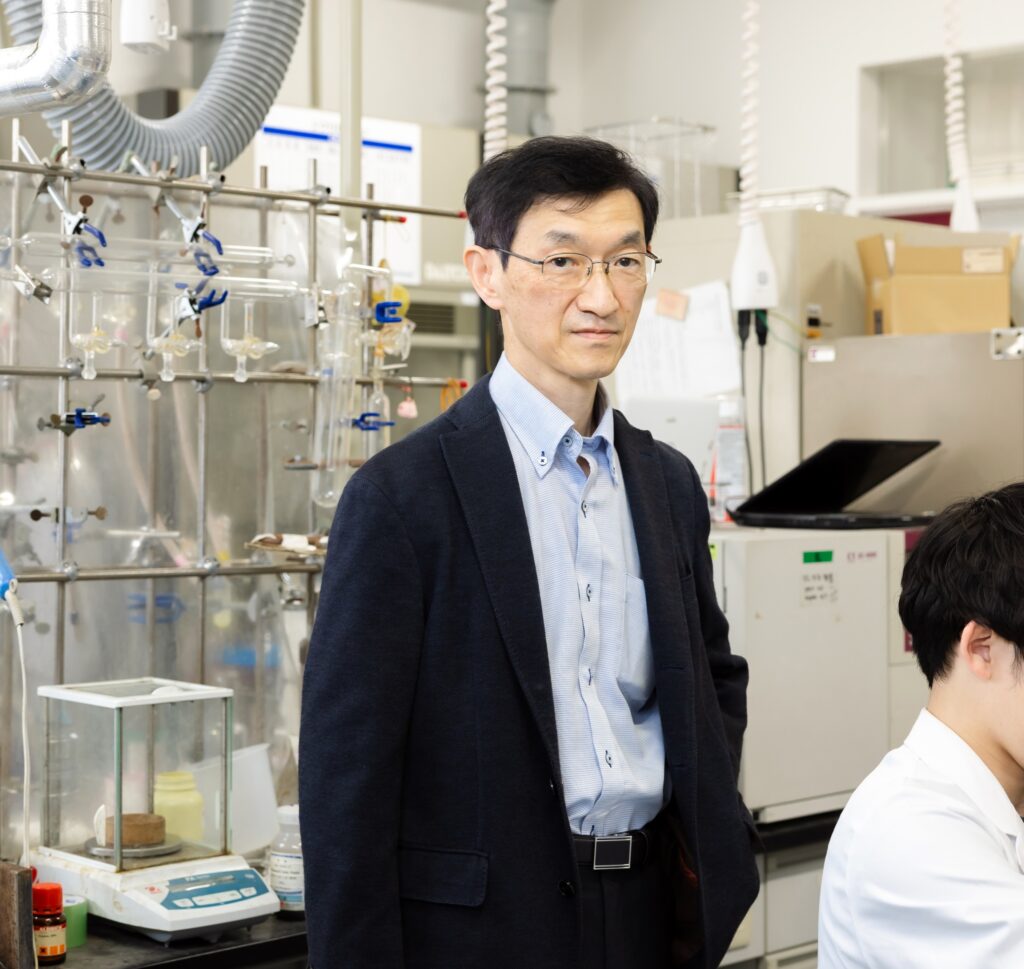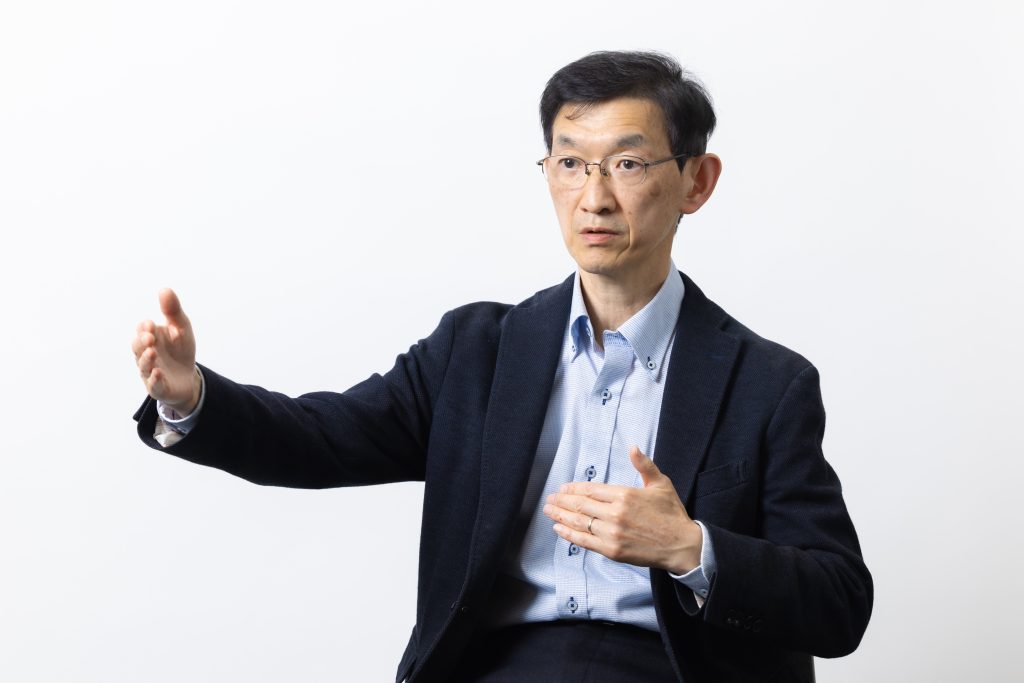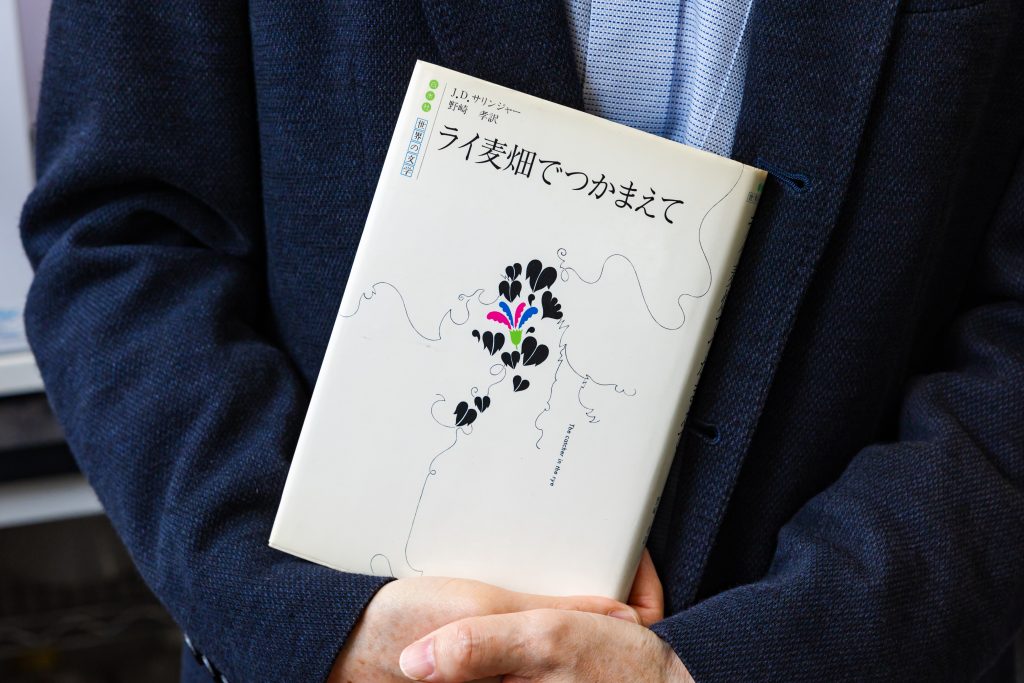
Professor Noriyuki Suzuki specializes in synthetic organic chemistry. As part of the Faculty of Science and Technology, he researches new methods of organic synthesis using organometallic complex catalysts and considers how environmentally-friendly synthetic organic chemistry could contribute to decarbonization in society.
Organic synthesis is used to create many materials that are a vital part of our daily lives, including pharmaceuticals, textiles, dyes, and plastics. In addition to research into how to create these necessities, research can also be done on the various ways in which organic synthesis is achieved. This is the focus of my research.
To give you an example, take a case where an organic synthesis compound requires three stages to be created. Additionally, if this could be achieved in one stage instead of three, we could save time and energy, and if we could replace expensive substances used in experiments with cheaper versions, we could make it more economical. Therefore we need to find new synthesis methods.
Catalysts, which cause a reaction but remain unchanged by the reaction, are vital for organic synthesis. Choosing which type of catalyst to use is the key to finding new synthesis methods.
Catalyst performance is determined by the ligand design

Commonly used catalysts include transition metals such as titanium and palladium. Transition metals represent elements between group 3 and 11 in the periodic table. Transition metal catalysts can cause a range of reactions, but to control these reactions more precisely, we need to add organic materials called ligands around the transition metal. This creates what is called a “complex” in chemistry.
We add ligands to transition metals, adding them in one place, removing them from another, creating different designs to see how precise we can get our catalysts to be. My research comes from the idea that if we place two different metals close to each other, sandwiching an organic material so that neither metal detaches, we should be able to get a new type of catalyst that we could not create with just a single metal. Research generally starts with imitating those who went before you, but I would like my research to incorporate as much originality as possible.
I am also researching methods to create organic reactions in water. Organic reactions are generally performed by dissolving substrates/catalysts into an organic solvent such as alcohol or toluene. As organic solvents are made from fossil fuels, burning them emits carbon dioxide. If we could create organic reactions in water instead of organic solvents, we could avoid this issue.
Organic synthesis in water will reduce greenhouse gas emissions
If we can use thermo-responsive surfactants, then we might be able to solve the issues of greenhouse gas emissions, and reduce energy consumption used in disposal. Surfactants are compounds formed from hydrophilic (water compatible) and hydrophobic (oil compatible) groups. In the case of a typical surfactant like detergent, the hydrophobic compounds bond with oil residue, then are surrounded by the hydrophilic compounds in a spherical shape called a micelle. This allows the oil to be rinsed off along with the water.
Raising the temperature in a certain surfactant will create a micelle, while lowering it will cause the micelle to vanish, and the oil and water will separate. This is something we have known for some time. What my colleagues and I are aiming for is to add a catalyst to this thermo-responsive surfactant to carry out organic synthesis. We raise the temperature to carry out organic synthesis within the micelle, and lower it to separate them and collect the clear layer of water atop the liquid, so we can reuse it. That is an example of the sort of environmentally-friendly organic synthesis reaction we hope to achieve.
In today’s society, as decarbonization progresses, people are questioning the necessity for organic synthesis made from fossil fuels. This is something I hope to tackle with the younger generation. It is not easy to create the reactions you want, but there is nothing like the thrill of something going right or getting results you never even dreamed of. Wondering why something happened the way it did is how you find your next research topic.
The book I recommend
“The Catcher in the Rye”
by J. D. Salinger; Japanese translation by Takashi Nozaki, Hakusuisha

The voice of the protagonist as he tells his story, and the atmosphere of the work, drew me in, and I have read the novel many times since first reading it in high school – including the new translation. It makes you aware of the struggles faced by an individual in society. It is a book I turn to when I need the reminder.
-
Noriyuki Suzuki
- Professor
Department of Materials and Life Sciences
Faculty of Science and Technology
- Professor
-
After graduating from the University of Tokyo’s Faculty of Engineering with a degree in synthetic chemistry, he received his M.S. and Ph.D in Engineering from the university’s graduate school. After working at Showa Denko as a researcher, then a research assistant at Institute for Molecular Science, and later a researcher at RIKEN, he was appointed as an associate professor at Sophia is 2009, before assuming his current post in 2014.
- Department of Materials and Life Sciences
Interviewed: May 2022